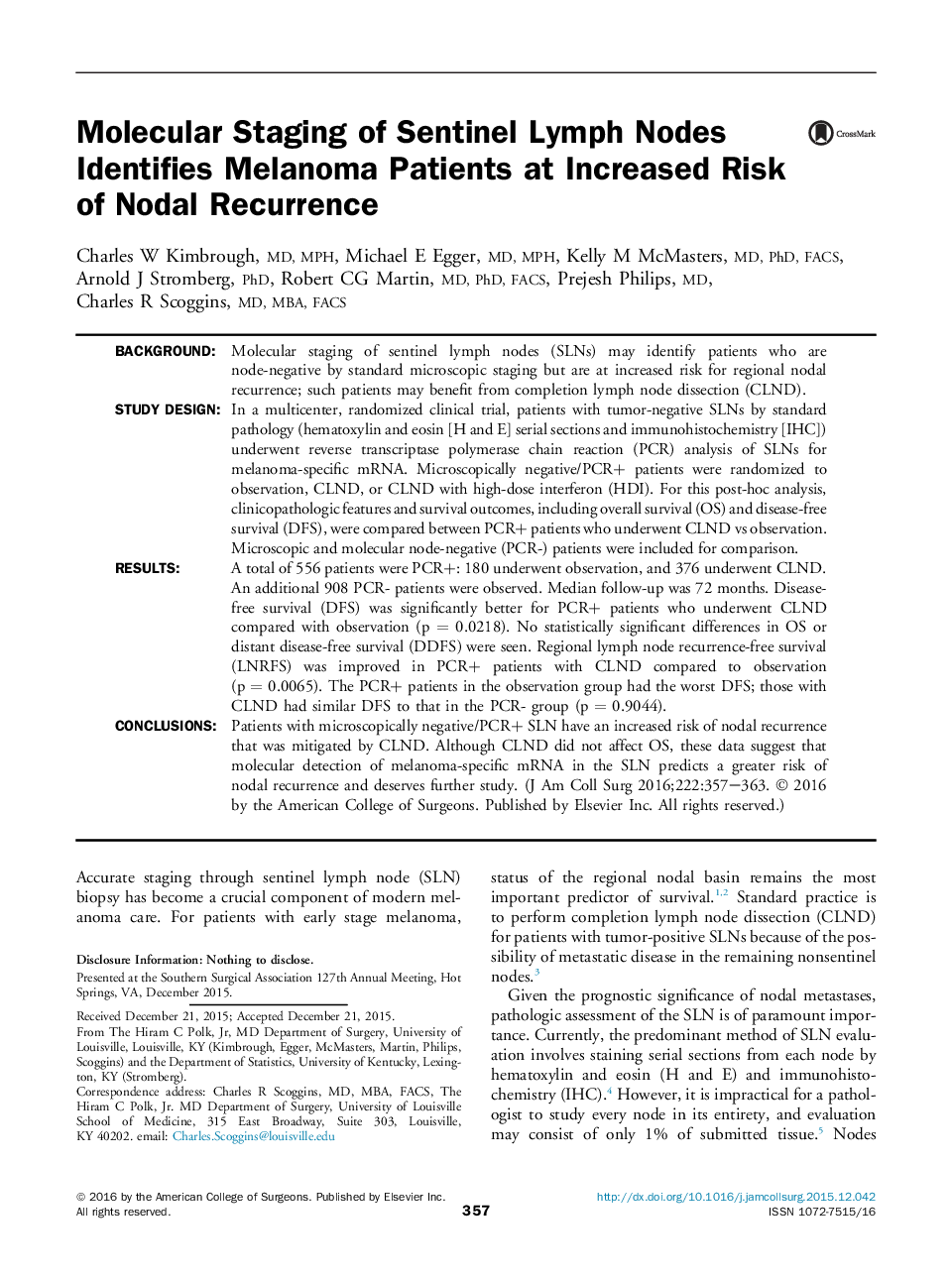| کد مقاله | کد نشریه | سال انتشار | مقاله انگلیسی | نسخه تمام متن |
|---|---|---|---|---|
| 4290715 | 1612207 | 2016 | 7 صفحه PDF | دانلود رایگان |

BackgroundMolecular staging of sentinel lymph nodes (SLNs) may identify patients who are node-negative by standard microscopic staging but are at increased risk for regional nodal recurrence; such patients may benefit from completion lymph node dissection (CLND).Study DesignIn a multicenter, randomized clinical trial, patients with tumor-negative SLNs by standard pathology (hematoxylin and eosin [H and E] serial sections and immunohistochemistry [IHC]) underwent reverse transcriptase polymerase chain reaction (PCR) analysis of SLNs for melanoma-specific mRNA. Microscopically negative/PCR+ patients were randomized to observation, CLND, or CLND with high-dose interferon (HDI). For this post-hoc analysis, clinicopathologic features and survival outcomes, including overall survival (OS) and disease-free survival (DFS), were compared between PCR+ patients who underwent CLND vs observation. Microscopic and molecular node-negative (PCR-) patients were included for comparison.ResultsA total of 556 patients were PCR+: 180 underwent observation, and 376 underwent CLND. An additional 908 PCR- patients were observed. Median follow-up was 72 months. Disease-free survival (DFS) was significantly better for PCR+ patients who underwent CLND compared with observation (p = 0.0218). No statistically significant differences in OS or distant disease-free survival (DDFS) were seen. Regional lymph node recurrence-free survival (LNRFS) was improved in PCR+ patients with CLND compared to observation (p = 0.0065). The PCR+ patients in the observation group had the worst DFS; those with CLND had similar DFS to that in the PCR- group (p = 0.9044).ConclusionsPatients with microscopically negative/PCR+ SLN have an increased risk of nodal recurrence that was mitigated by CLND. Although CLND did not affect OS, these data suggest that molecular detection of melanoma-specific mRNA in the SLN predicts a greater risk of nodal recurrence and deserves further study.
Journal: Journal of the American College of Surgeons - Volume 222, Issue 4, April 2016, Pages 357–363